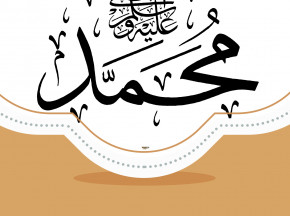content of level
Marriage and Divorce
Nikah or marriage is encouraged in Islam, it is endorsed in the Qur’an, the Sunnah and the unanimity of scholars because it protects fabric of the family and the Islamic social structure.
Night Prayer during Ramadhan
A summary of the rulings, etiquette and Sunnah of Qiyaam.
The Description of the Prophet’s Prayer
Each worship has a quality and manner demonstrated by Allah or by His prophet peace be upon him. So the writer of this message said in the introduction: "This is a brief about the manner of praying of the prophet introduced to each Muslim to try hard to follow him for the saying of the prophet "Pray as you have seen me praying." narrated by Bukhari.
Animal slaughter
Slaughter should be in accordance with the way recommended by Islam, it is obligatory, if not, it is not permitted to eat that animal. Scholars unanimously agree on this.
When no ruling is given
It is permissible to eat anything to which no ruling of prohibition applies. Yet, it is discouraged to eat uncooked onions, garlic and similar plants right before going to the mosque.
What is specifically forbidden to eat
The basic rule about forbidden food is that whatever is unclean, unwholesome or harmful must not be eaten. All substance and alcohol are also forbidden such as poison and narcotics.
What is stated as permissible to eat
Any food that is clean and harmless is permissible in Islam, whether vegetarian or not. The Quran and the Sunnah states clearly what is forbidden to eat due to being harmful.
Food, Animal Slaughter and Hunting
Islamically, all food is lawful to eat except what God has made forbidden. God forbids only what is of no benefit to man, or what may have a bad effect on man’s health or what is sinful.
Types of ta'zir punishment
Types of ta’zir punishments are varied, they can be physical, financial, combination of both physical and financial, imprisonment and exile or moral punishments such as public rebuke.
Extent of punishment
Ta’zir punishment has no measures, they are left to the judge’s discretion, it can go as high as the capital punishment if it protects the community as in the case of spying crime.
Enforcement
Enforcement of Ta’zir requires two types of actions: To neglect duties when one is able to fulfill them such as repayment of debts or doing what is forbidden such as bribes.
Discretionary punishments
Ta’zir, in the Islamic law, are punishments needed to protect society against chaos and corruption. The enforcement of a ta’zir punishment is subject to the Muslim ruler’s discretion.
Theft
Theft is a cardinal sin, it is an aggression on other people’s rights. The punishment for theft is cutting the hand of the thief, but there are conditions for this to be enforced.
Drinking intoxicants
This article tackles the ruling on drinking intoxicants in Islam, it is unanimously agreed that it is forbidden. The reason, punishment and conditions are discussed in detail.
Punishment for false accusation
The prescribed punishment for false accusation of adultery is severe for reasons such as: protecting society, safeguarding honors and putting an end to evil talk and indecency.
The crime of false accusation of adultery
Accusing an innocent person with adultery or any immoral acts is strictly forbidden by God by clear statements. All Muslim scholars agree that it is a cardinal crime; due to the harm caused to the person and society.
The mandatory punishment for adultery
To enforce the punishment for adultery, it must first be proven to have occurred. The proof required is either four confessions by the doer, or the testimony of four witnesses.
The nature of this sin
Zina is one of the gravest and most wicked sins, it leaves serious effects, causing absence of clarity of lineage. This is why, Islam warns very sternly against all extramarital relations.
Adultery
Zina stands for both fornication and adultery, which are cardinal sins. Islamically, it refers to sexual intercourse between man and woman with no legitimate marital relationship.
Mandatory Punishments (Hudud)
Hudud are punishments for encroaching on the limits set by God, their legitimacy is based on the Quran, Sunnah and unanimity of scholars such as adultery and theft punishments.




















